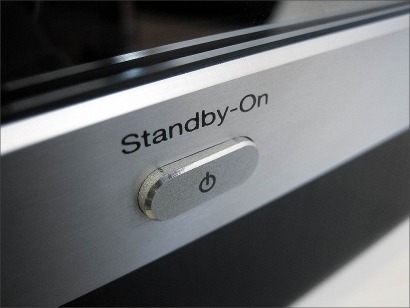
The study, ‘Powering the nation - household electricity-using habits revealed’, conducted by the Department for Environment, Food and Rural Affairs (Defra), the Department of Energy and Climate Change (DECC), and the Energy Saving Trust, also revealed that the UK is watching 10 billion hours more TV than previously thought, adding £205 million to electricity bills.
Powering the nation highlights the actual day-to-day use of electricity across the nation and allows us to see what is actually happening in people’s homes. The study is the first of its kind in the UK to measure and monitor electricity in real time in real-life situations, breaking down what electrical items are being used, when, for how long, and how much power they use.
Until now, a study of this magnitude and complexity had not been considered possible due to the technical challenges of monitoring usage.
Powering the nation reveals that people's relationship with energy, and level of usage, is actually worse than previously thought. The results from the Household electricity use field trial, which gathered data obtained from 251 monitoring systems in owner-occupied households, showed that consumers are still getting to grips with minimising their energy consumption around the home and that more work is required to help homeowners make the right choices.
"As this survey shows we are using a lot more energy than previously thought,” comments Environment Minister, Lord Taylor of Holbeach. “Manufacturers need to develop more energy-efficient electrical products and help consumers save money and the environment. We can all do simple things like switching off our televisions, computers and other home electronics and save up to £85 on electricity bills each year."
The in-depth Household Electricity Use Study provide us with the richest insights ever produced in the UK into how we use the electrical products that power our lives. The report uncovers a number of surprises, mostly unwelcome ones:
"Using energy more wisely in our homes will not only cut carbon but will also help save money on bills. But first we need to really understand how we use this energy in order to become more energy wise. This report provides vital insights into what is happening on the ground, highlighting the need for more energy-efficient household electrical appliances and indicating which appliances contribute most to electricity demand at peak times. This research will help us to understand and manage household energy demand," adds Energy and Climate Change Minister, Greg Barker.
Meanwhile, Philip Sellwood, Chief Executive of the Energy Saving Trust, stresses that it iscrucial that households across the nation can make informed decisions by having the right advice to help them reduce their energy usage and fuel bills. “This research shows that there’s still more work to be done with consumer advice, product innovation and take up of energy-efficiency labelling. We continue to support industry and consumers though our Energy Saving Trust Recommended labelling scheme which helps consumers spot the most energy-efficient products in each category.”
The Government is working with the European Union to ensure that Green Energy Labels are displayed on all new electrical appliances displayed for sale, providing clear and easily recognisable information for consumers about the relative energy consumption and performance of domestic appliances.
In addition, the report also found that single-person households were seen to be using as much, and sometimes more, energy on particular appliances as typical families.
For additional information:

